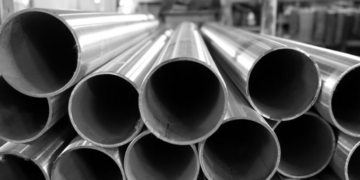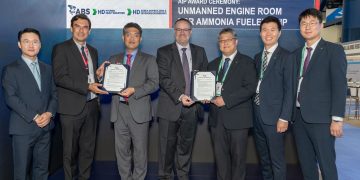New DSME gas tank technology approved by LR
ACTIB tanks will reduce sloshing and are suitable for widespread use for LNG containment Lloyd's Register has approved new prismatic IMO Type B independent cargo tanks, so called ACTIB (Aluminium Cargo Tank Independent Type B). The initial approval is for use in a DSME-developed 210,000 m3 STD LNG-RV design in accordance with LR's Guidance notes for liquefied gas carriers and floating offshore installations adopting IMO Type B independent tanks primarily constructed of plane surfaces.The approval in principal (AiP) follows a one year period of development and collaboration between DSME and Lloyd's Register. An evaluation for the next step - General Approval - has also been completed by Lloyd's Register.The ACTIB tanks, constructed of insulated aluminium 5083, will have the world's largest storage capacity in an independent, insulated LNG tank system. The volume capacity in the initial design will be nearly three times larger than comparable types currently in operation.One of the leading benefits of ACTIB is the potential for safe and more flexible operations in part filled conditions as the structural arrangement can be designed to withstand sloshing. So, as well as application in the DSME designed 210,000 m3 volume LNG carrier, the tank will be of particular interest for ...
Read more

























































